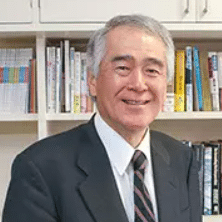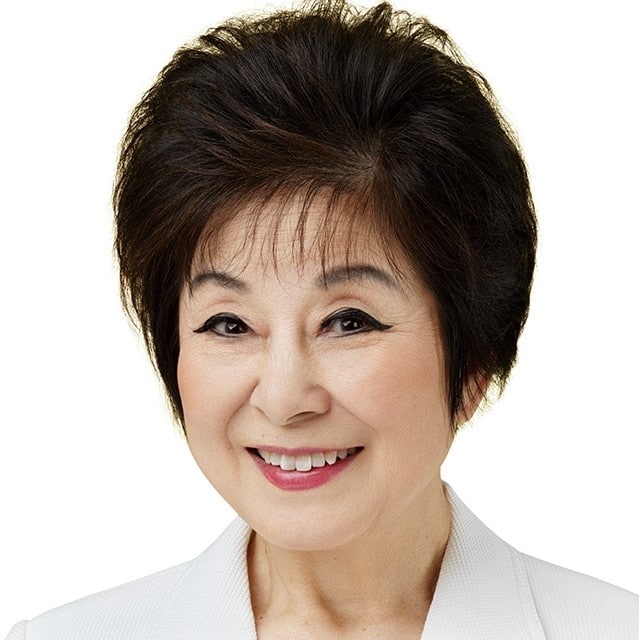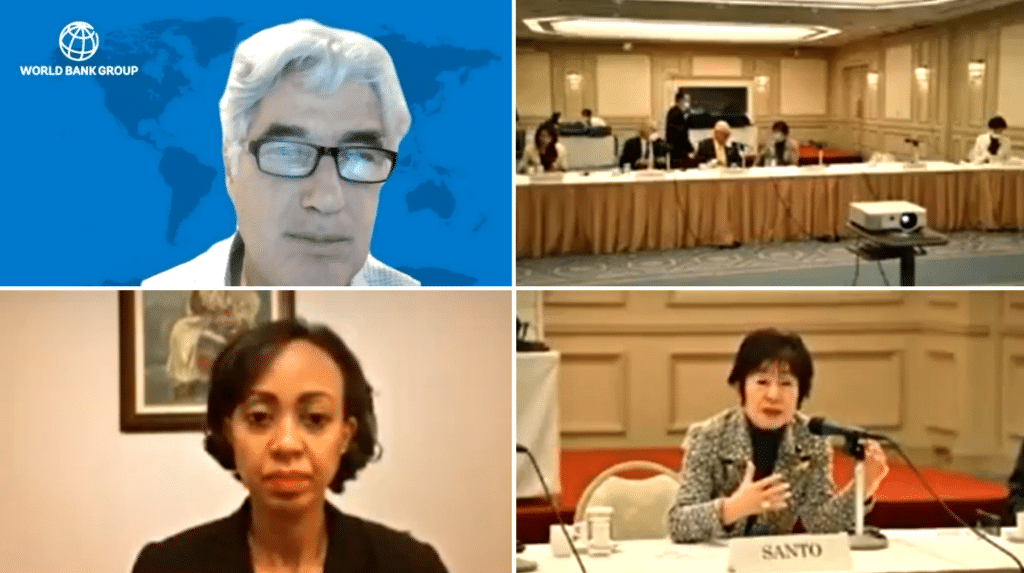Leading up to the Nutrition for Growth 2021 Summit, the Japan Center for International Exchange (JCIE) hosted a high-level webinar, “How to Protect the Nutrition and Health of Women, Children, and Adolescents in the Time of COVID-19—The GFF’s Efforts to Help Build a Resilient and Inclusive Health System,” that brought together Diet members and key figures in discussions on advancing Universal Health Coverage (UHC), and how the Global Finance Facility for Women, Children, and Adolescents (GFF)* plays a vital role in building a “no one left behind” healthcare system worldwide. The program is part of JCIE’s program on Building Understanding of and Support for the Global Financing Facility.
AGENDA

Opening Remarks
AKIO OKAWARA
President & Chief Executive Officer, JCIE

Welcoming Remarks
AKIKO SANTO
President, House of Councillors; Chair, Parliamentary Caucus on International Mother and Children Nutrition Improvement

Current Status of Maternal, Child, and Adolescent Health and Nutrition in Ethiopia and the Role of GFF
LIA TADESSE GEBREMEDHIN
Minister of Health, Federal Democratic Republic of Ethiopia

GFF for the World Bank
JUAN PABLO URIBE
Global Director for Health, Nutrition & Population and GFF Director, World Bank
Interactive Q&A Session with Diet Members

Closing Remarks
KEIZO TAKEMI
Member of the House of Chancellors; JCIE Senior Fellow
In his opening remarks, Akio Okawara, president and CEO of JCIE/Japan, discussed the role that Japan and the GFF play in promoting UHC. Since 2018, JCIE has implemented operations to deepen understanding of and support for the GFF among decision-makers and global health experts in Japan, but he noted that many Diet members do not know about the GFF. Considering that Japan had pledged $50 million to the GFF last month ahead of the Tokyo Nutrition for Growth Summit, he expressed hope that this meeting would provide an opportunity to enhance understanding of the GFF’s role in building resilient health systems among Diet members.
Following the opening remarks, Akiko Santo, the president of the House of Councillors and chair of the Parliamentary Caucus on International Mother and Children Nutrition Improvement, provided welcoming remarks. She discussed the importance of Japan supporting nutrition, as well as her efforts in prioritizing nutrition legislation, but recognized that Japan’s international contributions were still low, being the lowest contributor to nutrition among the G7 countries. She shared the recommendations of a bipartisan parliamentary group that nutrition be prioritized as a part of UHC. She also expressed her hope to realize closer collaboration between Japanese stakeholders and the GFF/World Bank.
Lia Tadesse Gebremedhin, minister of health of the Federal Democratic Republic of Ethiopia, discussed how the COVID-19 pandemic exposed weaknesses in health systems worldwide, including the burden of malnutrition in low- and middle-income countries (LMICs) like Ethiopia, which has the highest prevalence of undernutrition. She also noted that, even as attention shifted to mainly focus on COVID-19 during the pandemic, countries have tried to ensure that essential services like nutrition would be covered in order to mitigate the negative effects on progress made in nutrition interventions. She stressed the importance of the GFF’s involvement and support in helping to fill the financial gap in accessing essential services like nutrition and better mobilizing resources before and during the COVID-19 pandemic, and expressed her hope that increased investment in building resilient health systems in LMICs will help provide social and nutrition services during emergencies like pandemics.
Juan Pablo Uribe, the director of the GFF and global director for health, nutrition, and population at the WB, discussed the role of the GFF and the World Bank, including how the GFF has had a focus on strengthening and building more resiliency in health systems with a focus on positively impacting the health of women, adolescents, and children. He discussed the GFF’s effective approach to the COVID-19 pandemic, and how it was made possible through strong country leadership and investment cases that speak to a countries’ priorities, as well as a strong collaboration between multiple sectors. He stressed that nutrition should be integrated into the whole continuum of care for mothers, adolescents, and children, instead of being isolated from other core essential health services, and that the GFF is delivering around 30% of its funds specifically to nutrition services to ensure the stronger development and wellbeing of vulnerable populations to better close equity gaps.
In an interactive Q&A session with Diet members and speakers, one Diet member asked if countries that have been impacted by Ebola in previous years were better set up to cope with COVID-19 compared to other countries, or if the situation was more serious. Gebremedhin and Uribe discussed the investments made in public health emergency management to prepare for an Ebola pandemic in countries like Liberia, which may have contributed to a stronger COVID-19 response through established prevention measures, but that the further strengthening of all health systems in a sustainable way will best prepare countries for future global health challenges.
Additional comments and questions included concerns for nutrition in conflict areas and how the GFF can support these populations and questions about what is expected from Japan and how can it contribute to the global community to prepare for future pandemics. Speakers noted in response that one-third of the countries that the GFF supports are fragile or contain conflict areas and stressed the importance of strong and resilient systems to ensure countries can continue the screening of nutritional status. They also noted the multisectoral collaboration between humanitarian partners, development partners, and donors that helped support and address needed supplies, and discussed modalities to avert and reduce preventable malnutrition in vulnerable populations in these conflict areas. In addition, they responded that one way Japan can support countries globally is through continued and strengthened support through global mechanisms like the GFF that can efficiently align with country priorities, plans, budgets, and capacities to improve global health.
In his closing remarks, Keizo Takemi, member of Japan’s House of Councillors and JCIE senior fellow, brought together the main points of the discussion, noting the efforts made by Japan to prioritize UHC into the Sustainable Development Goals (SDGs) and the collaboration between different sectors to bolster proactive support of health. He also touched on the successful inclusion of health into the International Development Association of the World Bank, and additional efforts to address UHC at the World Bank through the GFF. In addition, he stressed that the GFF is a mechanism that concretized Japan’s rationale for mobilizing more resources for health by creating closer collaboration between health and finance ministries. Finally, he stressed that essential health services like nutrition play key roles in prevention, and that by mainstreaming nutrition, we can ensure healthier populations and eventually stronger health systems, which is critical in order to achieve UHC.

